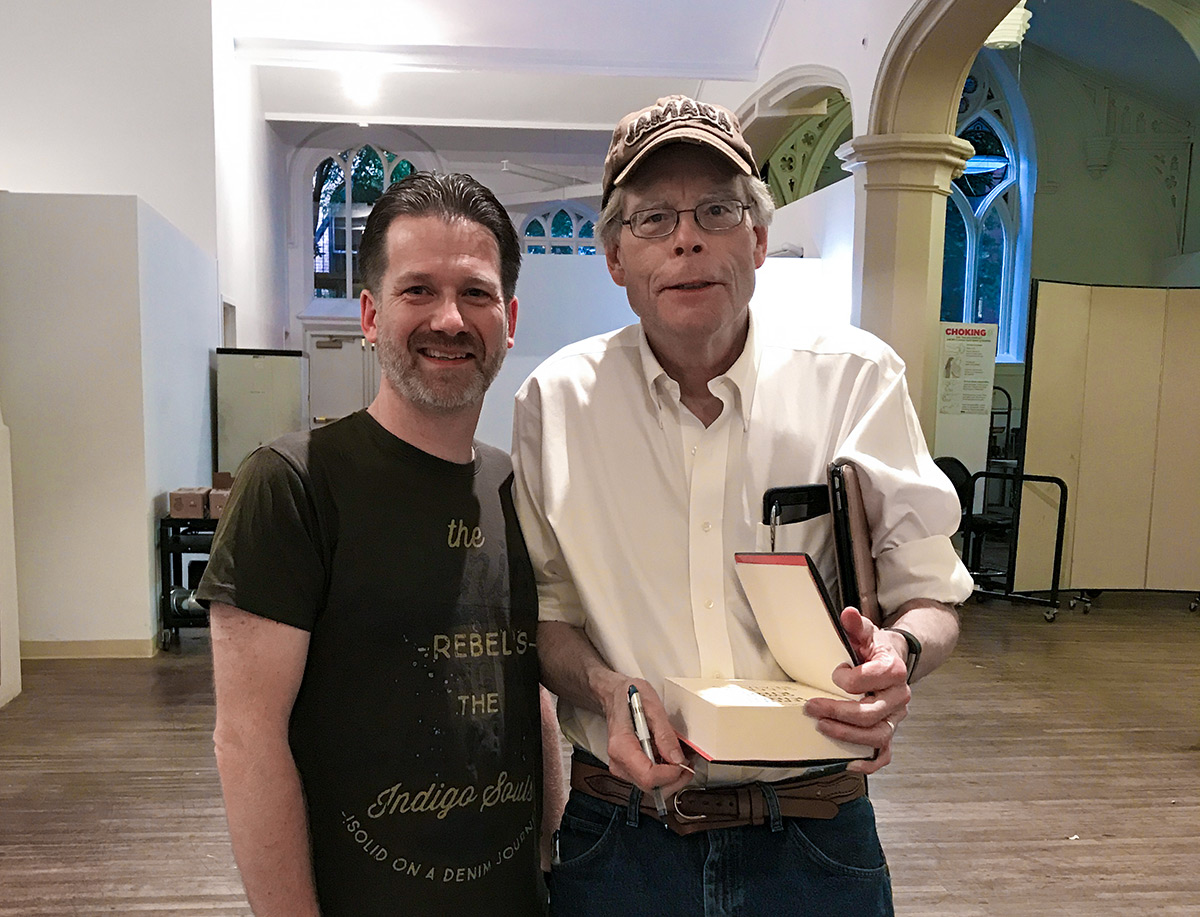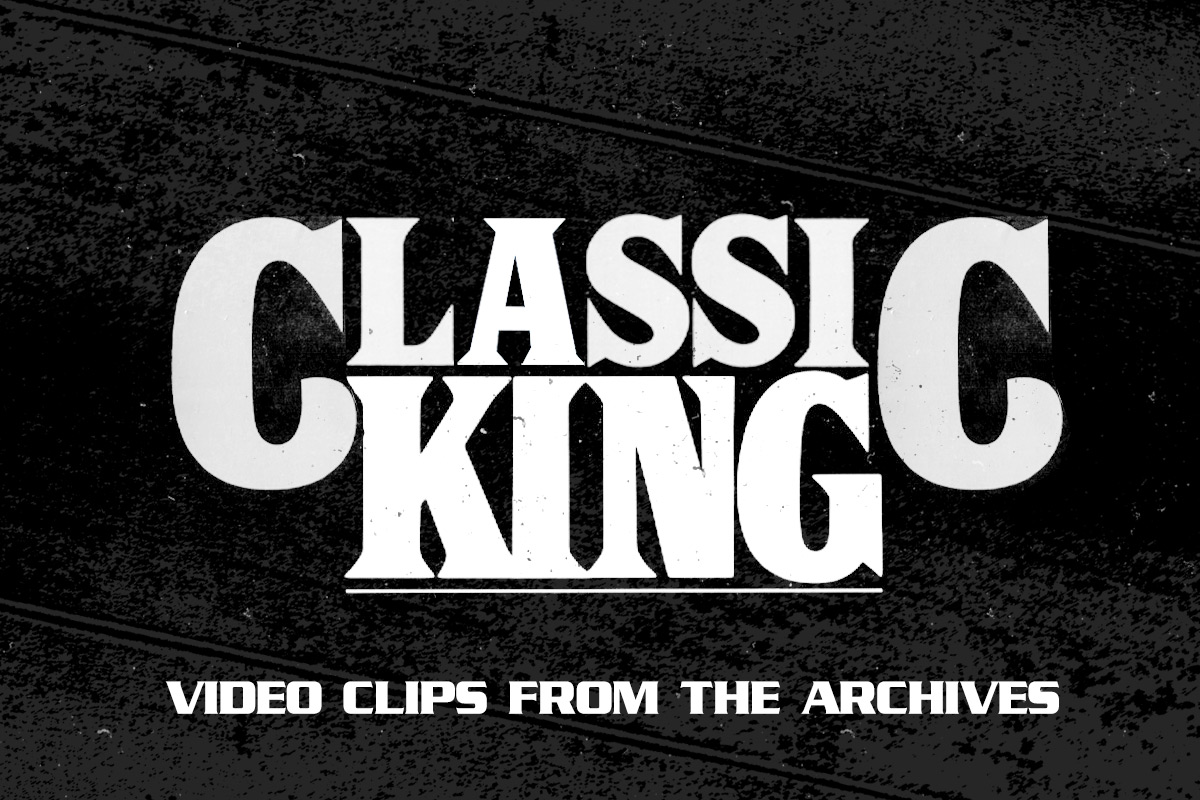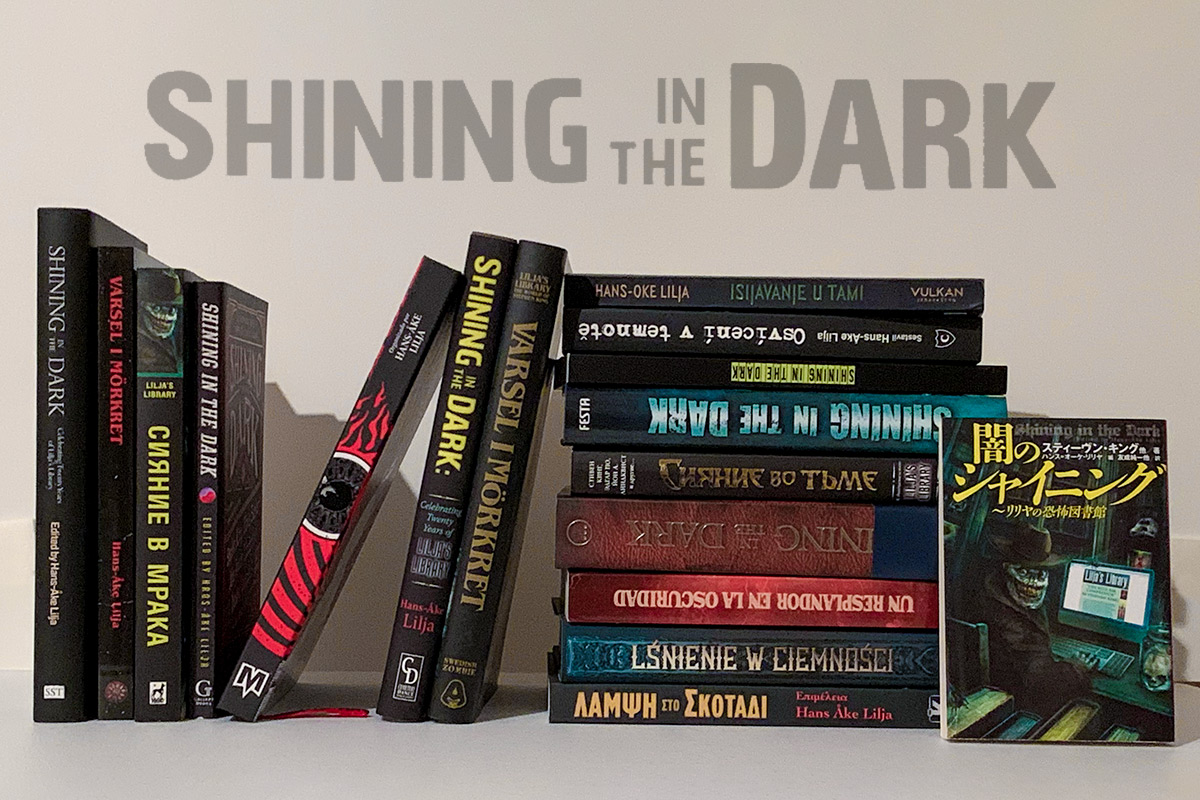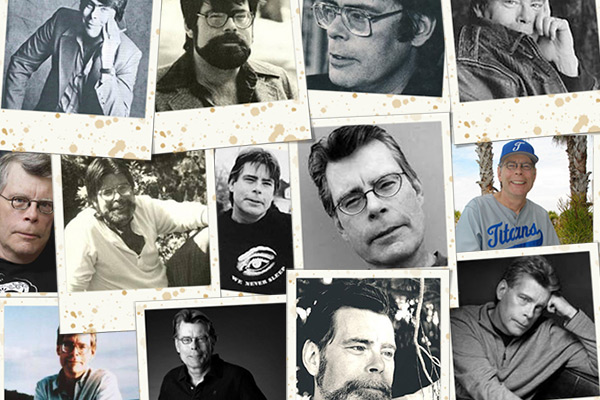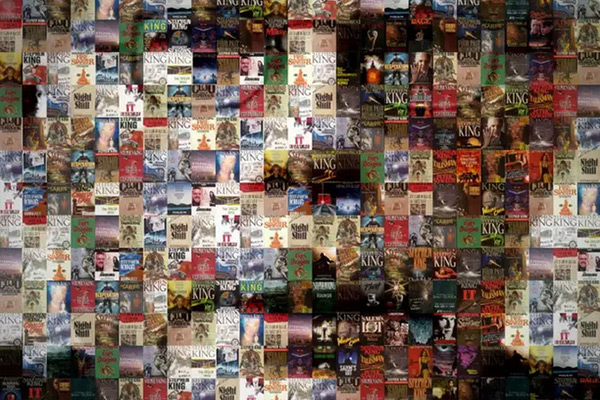Mike Flanagan
Posted: December 27, 2017
_
Lilja: Gerald's Game was for a long time seen as the un-filmable Stephen King book. What made you decide that was the book you wanted to film?
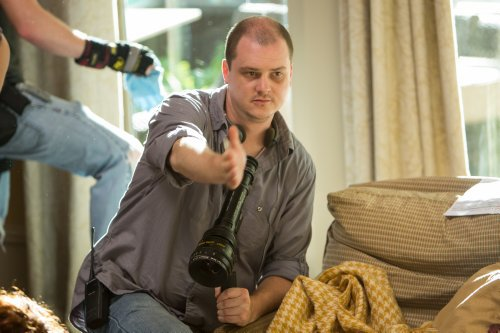
Mike Flanagan: I really responded to the story when I read it. I'd always loved his writing, but there was something so immediate and intimate about the journey that Jessie goes on that struck me as completely unique. It was such a visceral, psychological experience. And I really thought she represented one of King's finest heroines. It seemed like such an impossibly complex story, all told entirely within her mind... I hadn't ever read anything like it, and I recognized immediately that it would be almost impossible to adapt it properly. The challenge was always dwarfed by the impact of the story itself, and even though I spent a lot of time feeling like I had no idea how it could be translated, I always came back to wanting to see the film. As the years went on, that was the one novel more than any other that I couldn't get out of my mind.
Lilja: Did you ever think "this can't be done" during the process of filming or writing the script?
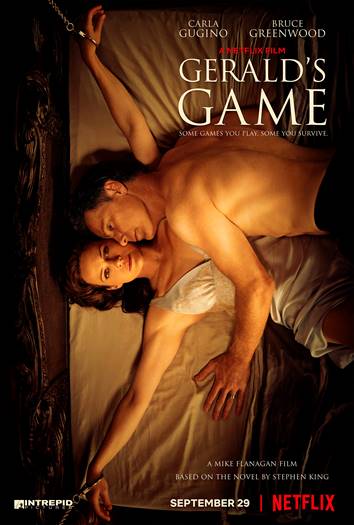 Mike Flanagan: Many times. When King gave me permission to begin working on the script, I sat with the book in my lap and just shook my head. Probably the first two weeks went like that... I'd stare at the book, and then put it down and wonder what the hell I'd gotten myself into. It always felt like we were on a tightrope. And once production began -- a film is always on the brink of dying, that's just part of the job. Directing a movie is like having a patient in intensive care. Every few hours there's a crisis, and the patient could go at any time. But with this one, it was even harder than usual... the typical anxiety was increased exponentially, because even if everything else went just right, there was still the sense that the story couldn't be told cinematically. There were a lot of times I'd just hold my breath and dive into a scene, praying that it was going to work. And frankly, if we didn't have the cast we had, there are a lot of times it absolutely wouldn't.
Mike Flanagan: Many times. When King gave me permission to begin working on the script, I sat with the book in my lap and just shook my head. Probably the first two weeks went like that... I'd stare at the book, and then put it down and wonder what the hell I'd gotten myself into. It always felt like we were on a tightrope. And once production began -- a film is always on the brink of dying, that's just part of the job. Directing a movie is like having a patient in intensive care. Every few hours there's a crisis, and the patient could go at any time. But with this one, it was even harder than usual... the typical anxiety was increased exponentially, because even if everything else went just right, there was still the sense that the story couldn't be told cinematically. There were a lot of times I'd just hold my breath and dive into a scene, praying that it was going to work. And frankly, if we didn't have the cast we had, there are a lot of times it absolutely wouldn't.Lilja: It was first announced that you'd make the film back in May 2014. How come it took over three years until it's premier?
Mike Flanagan: The 2014 announcement came right as I got the rights to write the script. People don't realize what a long and difficult process it is to get a movie greenlit. Even when the script was done, which was in the fall of 2014, we still had to find a financier, a distributor, and a cast. That takes a huge amount of work... and luck. At first, even with the script finished, we couldn't find a financier willing to bankroll the film as it was written. People didn't understand the film, and it was considered very "execution dependent," which basically means that they're afraid it's too difficult to risk their money on. On top of that, I was also working on HUSH (shot in early 2015) and OUIJA: ORIGIN OF EVIL (shot in late 2015), so my dance card was very full. As soon as we found a partner willing to make the film, we did. These things take time... and I was never going to let GERALD'S GAME be rushed. I'd already waited 18 years to make the film, another year or two wouldn't matter so long as we could do it RIGHT.
Lilja: The reason a lot of fans didn't think Gerald's Game could be turned into a film was that a lot of the story takes place in Jessies head. You solved it brilliantly by letting the viewer see the people whose voices she hears in a way that no one can misunderstand that they are her voices. Was this always your approach or did you have other ideas?
Mike Flanagan: That was always the approach. It was one of the first images that popped into my head back in my early twenties, when I'd think about how the hell to make this film work: I saw an image of Gerald's arm at the foot of the bed, lifting himself off the floor. And then of Jessie, looking down and seeing his outstretched arm on the floor, even as she talked to him. That was the biggest moment when I first thought the movie could be filmable. Once that shoe dropped, the rest of the movie had a solid foundation on which to build, and it meant that I could take some of the most impactful ideas from the book and put them into dialog. There was never really another way to do it, at least in my mind.
Lilja: The casting is great, congratulations on that. How involved where you in the casting?
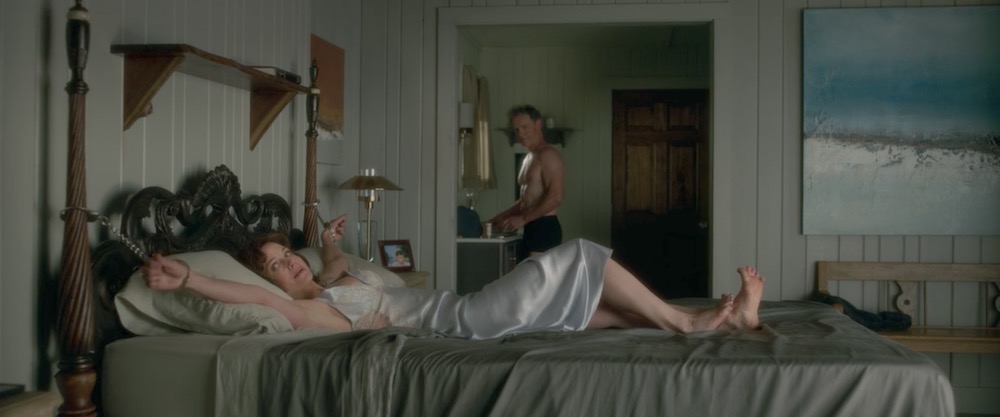
Mike Flanagan: 100% involved, but that's not unusual. Casting is critical to everything I do, and I always knew the film would live or die based on who we were able to cast. It was a long, rough process trying to find the right actors. King suggested Bruce Greenwood, which I thought was a brilliant idea... but Jessie was much harder to find. We looked at a lot of options, and finding an actress brave enough to take on the roll was a lot more challenging than I thought it would be. Ultimately, we couldn't have been more fortunate than to have Carla Gugino step into the part. She really owns that character, and the whole movie was elevated by her presence.
Lilja: Was it a conscious decision to put Henry Thomas, as a lot of people know as the cute kid in E.T., in the creepy part? Either way it works great. He is creepy as hell if you ask me.
Mike Flanagan: I'd worked with Henry on OUIJA: ORIGIN OF EVIL and I absolutely think the world of him. I knew this would be putting him in a very difficult place, and working against decades of goodwill with audiences, but he was perfect for it. I've been fortunate enough to work with Henry a few times now (we're doing a TV show together right now, along with Carla Gugino) and I was amazed by the work he did in this film. We would joke, going in, that it was going to destroy his image... I think he said at one point that we were going to ruin E.T. and Sam Cooke in one fell swoop, and he was right. But man, what a wonderful (and horrible) performance.
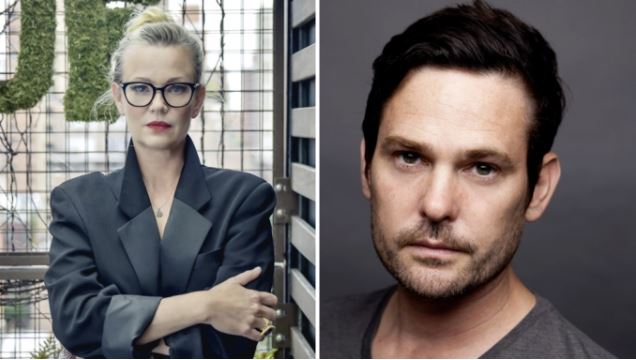
Lilja: Was it very different to do it for Netflix instead of a theatrical release?
Mike Flanagan: It was, but in a very goo way. Netflix was the only studio brave enough to let us make the movie the way we wanted to make it. No one else would have had the guts, especially if it had to be put through a theatrical release. Once you go theatrical, you put yourself at the mercy of focus groups and marketing departments who are trying to make the film as appealing as possible to the most people. This film was NEVER going to work in that model. It's a bummer not to see it in theaters, for sure, but I'm grateful every day that Netflix had the conviction and courage to make the film properly. Without them, this movie never, ever would have been made at all.
Lilja: Stephen King said: "Saw a rough cut of Mike Flanagan's GERALD'S GAME yesterday. Horrifying, hypnotic, terrific. It's gonna freak you out." How did it feel to get such great feedback from the King himself?

Mike Flanagan: I almost fell off my chair. He can be very tough on his adaptations (ask Kubrick) and I really wanted him to be proud of the film. Seeing that tweet was one of the biggest fanboy moments of my life.
Lilja: If you could pick another King book to film. Which would you pick and why?
Mike Flanagan: There are so many. But the ones I'd want to do the most are DOCTOR SLEEP and LISEY'S STORY. In both cases, it's because I identify with the protagonists so much. LISEY'S STORY is a stunning piece of work, a beautiful exploration of marriage. And who wouldn't want to venture back into the world of Danny Torrence?
Lilja: What's next for you now?
Mike Flanagan: Right now I'm shooting THE HAUNTING OF HILL HOUSE as a Netflix Original show, and I'll be working on that for a LONG, long time. The great news is that I'm working with a lot of people I know very well, including Carla Gugino, Henry Thomas, Kate Siegel, Lulu Wilson, Annabeth Gish, and Elizabeth Reaser... in a lot of ways, it feels like a family reunion. I hope people love it!

